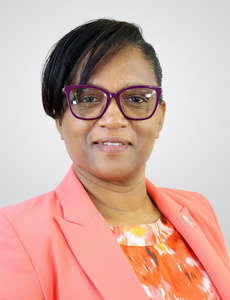
A Message from the Director of the PANCAP Coordinating Unit (PCU) on World AIDS Day 2025: Our Unyielding Resolve for an AIDS-Free Caribbean
Today, as we observe World AIDS Day, we are called to embrace the powerful theme of “Overcoming disruption, transforming the AIDS response.” This call resonates deeply across our Caribbean region, not as a mere slogan, but as a testament to the resilience that has always defined our people. We stand at a pivotal moment, facing the strong crosswinds of global funding cuts that threaten to slow our progress. But hear this clearly: our resolve has not been shaken; it has been steeled.
The path to ending AIDS by 2030 was never meant to be easy. Yet, the recent financial challenges present one of the most significant tests we have faced in decades. These cuts are not just numbers on a spreadsheet; they represent a potential threat to the medicines that keep our Caribbean brothers and sisters healthy, the prevention programmes that protect our youth, and the hope that has been steadily building across our territories.
But as Caribbean people, we are no strangers to overcoming storms. We have learned to build stronger, stand firmer, and innovate smarter when faced with adversity. The dream of an AIDS-free Caribbean, a Caribbean where no mother passes HIV to her child, where no life is cut short by AIDS, and where stigma and discrimination are relics of the past, is a dream we will not abandon.
Our commitment to achieving the 95-95-95 targets is unwavering. Why? Because we have seen the transformative power of treatment. We have witnessed communities rally together. We already have countries in our region that have eliminated mother-to-child transmission of HIV. This progress, hard-won by the dedication of governments, healthcare workers, civil society, and people living with HIV, is a foundation we will not allow to crumble (that we will continue to build on).
In this new reality, we are not merely surviving; we are transforming. We are forging a more efficient, more integrated, and more sustainable response. We are empowering our communities to lead, streamlining our supply chains, and ensuring that every single resource we have is used to its maximum impact. We are proving that our spirit and our collective will are our most valuable assets.
To our partners who stand with us, your solidarity is more crucial than ever. To the health care workers on the frontlines, your dedication is our inspiration. To the advocates and community leaders, your voice is our conscience. And to every person living with and affected by HIV in the Caribbean, we see you, we stand with you, and we reaffirm our promise: you are not alone.
Let me be clear: We will not go back. We will not surrender the gains for which we have fought so hard. We will navigate this challenge with determination, innovate with purpose, and unite with a common vision. The journey may now be steeper, but our destination remains the same. Together, we will overcome this disruption, transform our response, and realise an AIDS-free Caribbean for generations to come.
Thank you.
WHAT IS PANCAP?
PANCAP is a Caribbean regional partnership of governments, regional civil society organisations, regional institutions and organisations, bilateral and multilateral agencies and contributing donor partners established on 14 February 2001. PANCAP provides a structured and unified approach to the Caribbean’s response to the HIV epidemic, and coordinates the response through the Caribbean Regional Strategic Framework on HIV and AIDS to maximise efficient use of resources and increase impact, mobilise resources and build the capacity of partners.
What are the Global AIDS Strategy 2021–2026 targets and commitments?
If targets and commitments in the strategy are achieved:
- The number of people who newly acquire HIV will decrease from 1.7 million in 2019 to less than 370 000 by 2025
- The number of people dying from AIDS-related illnesses will decrease from 690 000 in 2019 to less than 250 000 in 2025.
- The goal of eliminating new HIV infections among children will see the number of new HIV infections drop from 150,000 in 2019 to less than 22,000 in 2025.
What are the 95-95-95 Targets for ending AIDS?
- 95% of People Living with HIV know their HIV status;
- 95% of people who know their status on treatment; and
- 95% of people on treatment with suppressed viral loads.
HELPFUL LINKS:
Global AIDS Strategy 2021–2026, End Inequalities, End AIDS
https://pancap.org/pancap-documents/global-aids-strategy-2021-2026-end-inequalities-end-aids/
Caribbean Regional Strategic Framework on HIV and AIDS (CRSF) 2019-2025
https://pancap.org/pancap-documents/caribbean-regional-strategic-framework-2019-2025/
